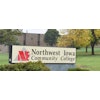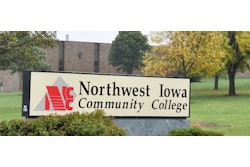It is well established that there are significant and alarming disparities in higher education enrollment, persistence and completion among racially and ethnically diverse students. “In light of the current COVID pandemic, we see even more evidence in the decline of enrollment among racially and ethnically diverse students,” says Dr. Deborah Manning.
 Dr. Deborah Manning
Dr. Deborah ManningWhile education is the great equalizer, enrollment and attainment gaps linked to race and ethnicity have long plagued the nation’s educational system, particularly among African American, Hispanic and Native American students. Researchers and practitioners emphasize the need for culturally relevant supports and interventions to address issues of equitable enrollment, retention and completion practices on college campuses. One such intervention, Culturally Responsive Teaching (CRT), has proven to be a powerful strategy to improve student success and completion.
Research demonstrates that CRT minimizes student alienation and aids student adjustment to the post-secondary environment. As a result, community colleges today are confronting the need to evaluate their teaching methods to ensure culturally responsive practices are sensitive to students’ identity and heritage. Dr. Terry Calaway has seen firsthand the positive effects and success when CRT is utilized in course curricula.
As students populate 21st-century classrooms, the need for culturally responsive pedagogies intensifies. Research shows racial and socioeconomic diversity in the classroom provides students with a range of cognitive and social benefits. Our challenge, then, is to ensure each student is successful through the intentional design of the college experience. It is incumbent upon educators to scrutinize and dismantle barriers facing underserved students and invest in equity-minded policies, practices and behaviors that lead to success.
To that end, we, as researchers, explored the groundbreaking work being done at the Community College of Baltimore County (CCBC). The faculty and leadership at CCBC have worked collaboratively to explore best practices in the classroom and have implemented these strategies to the significant benefit of students.
Consistent with the findings of Gay, culturally responsive teachers at CCBC are socially and academically empowering; engage in cultural knowledge, experiences, contributions and perspectives; validate each student’s culture, bridging gaps through diverse instructional strategies and multicultural curricula; are socially, emotionally and politically comprehensive, seeking to educate the whole student; transform practice by using students’ existing strengths to drive instruction, assessment and curriculum design; and are emancipatory and liberating from oppressive educational practices and ideologies.
 Terry Calaway
Terry CalawayWith a decade at CCBC of proven success, we found four themes that drive the work of this outstanding group of faculty.
Theme 1: CRT promoted a shift to a culturally responsive learning environment, one that is both inclusive and also essential. One conclusion drawn from our study is that students do better and increase their intellectual abilities through a growth mindset. Faculty and administrators must be aware of what not to say, such as, “Not everybody is good at math, just do your best.” The subtle difference lies in motivation, allowing students to have open conversations and to not feel intimidated by the classroom environment.
Theme 2: CRT increases student engagement. When students are engaged with faculty and other students, they develop a sense of security and connectedness that leads to participation in discussions, eventually becoming more deeply connected into the college community. We also found that students are more likely to become active in clubs and organizations and utilize safety nets when they find themselves in crisis.
Theme 3: CRT requires consistent reinforcement. Regular faculty development training is critically important. Training programs focusing on CRT allow faculty to reflect on themselves and to consider any biases they may have toward their students. As one faculty member reported to us, “You need to learn and reflect on how you are bringing culture into the classroom, your own culture and your own bias, and how those biases might impact learning.”
Theme 4: CRT promotes a shift in institutional culture. CRT fosters open dialogue in how discussions are approached and provides a safe path to discuss sensitive topics which may affect the student, faculty member and/or the institution. One faculty member reported, “We now talk about this stuff, where before, there were some subject matters that we did not want to talk about. Now, we know how to approach difficult conversations.”
While not a new concept, CRT is deserving of further discussion at our colleges and universities. With an expanding focus on student success, completion and a more diverse group of students entering our classrooms each term, the time is now to have open discussions at your campus.
Dr. Deborah Manning is assistant dean of adjunct administration and an adjunct professor at Bergen Community College in Paramus, New Jersey.
Dr. Terry Calaway is professor of practice, Community College Leadership Program, John E. Roueche Center for Community College Leadership, Department of Educational Leadership, Kansas State University, and formerly served as president of Johnson County Community College in Overland Park, Kansas.
The Roueche Center Forum is co-edited by Drs. John E. Roueche and Margaretta B. Mathis of the John E. Roueche Center for Community College Leadership, Department of Educational Leadership, College of Education, Kansas State University.
This article originally appeared in the June 10, 2021 edition of Diverse. Read it here.















